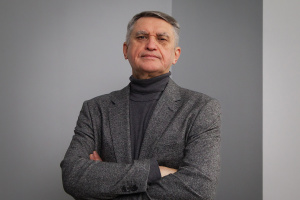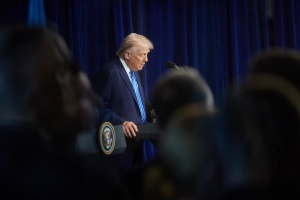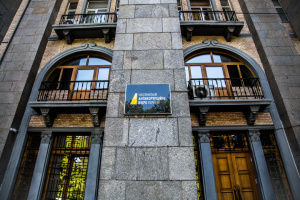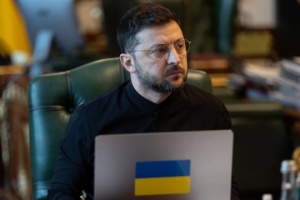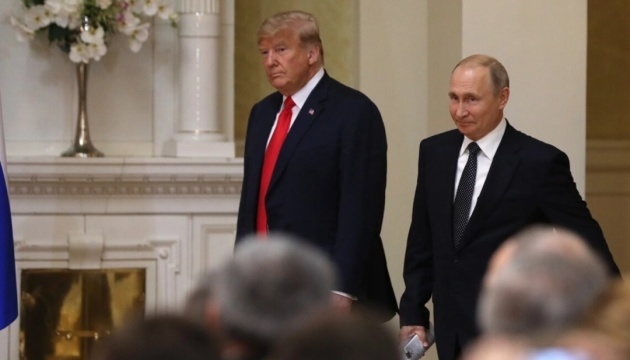
Riyadh negotiations: Russia is dragging out time, Trump is beginning to “see the light”
The main preliminary conclusion: the war is grinding on, the maritime ceasefire in the Black Sea and the cessation of attacks on energy facilities remain on paper only
The negotiations between the United States, Ukraine and Russia, which took place on March 23-25 in Riyadh, Saudi Arabia, raised hopes among the expert community that at least a temporary 30-day ceasefire could be established. However, these expectations turned out to be far removed from reality. The final statements of the parties only highlighted their fundamental differences, proving once again that a ceasefire remains unattainable for the time being.
Russia has put forward conditions that were not reflected in the Ukrainian-American communiqué (for more details, see the link), and partial agreements on reducing attacks on energy infrastructure and ensuring safe navigation in the Black Sea remain in question, in particular, due to the lack of viable mechanisms for enforcement monitoring.
The ambiguity of the negotiations outcomes was also confirmed by the long-awaited (by Ukraine) statement by Donald Trump, who admitted that he thought Russia could be dragging its feet on ending the war amid uncertainty over the terms of the new Black Sea ceasefire.
“I think that Russia wants to see an end to it, but it could be they’re dragging their feet,” he told Newsmax on Tuesday. that he thought Russia could be dragging its feet on ending the war amid uncertainty over the terms of the new Black Sea ceasefire.
“I think that Russia wants to see an end to it, but it could be they’re dragging their feet,” he told Newsmax on Tuesday.
Should this remark be seen as the beginning of a rethinking by Washington of its own policy towards Moscow? One would hope so. After all, despite Trump’s willingness to demonstrate progress in resolving the conflict, the actual results of the meeting indicate the opposite: Putin is not inclined to make concessions. His strategy is to gain time, preserve room for maneuver, while at the same time forming an information ground so that Ukraine can be blamed if something happens.
Formalities without guarantees
The meetings in Riyadh did not end with the signing of a single document on a ceasefire. Instead, a number of statements were made, which often contradict each other, political scientist Ihor Reiterovych said in a comment to Ukrinform.
Regarding a potential ceasefire in the Black Sea, even the Russian version of the statement lacks specifics. “It clearly states that a cease-fire would only come into force after sanctions are lifted against Russian agriculture and fertiliser exports. These conditions have not yet been met, and Ukraine has not recognized them. Therefore, there is no true ceasefire at sea,” the expert explains.
The situation with the cessation of attacks on energy infrastructure also remains uncertain. There are two lists of facilities: one agreed upon by Russia and the United States, the other by Ukraine and the United States. According to the Ministry of Energy, Kyiv has handed over to the American side a list of facilities in the electric power industry, oil and gas complex, nuclear and coal industries, as well as power engineering. At the same time, the list proposed by Moscow does not include oil and gas production facilities — precisely those that have recently suffered the most from Russian attacks.
“The key problem is the lack of verification, monitoring, and accountability mechanisms. This means that the ceasefire does not actually exist,” Mr Reiterovych emphasizes. — Moreover, after the announcement of a possible cessation of attacks, Russia has launched at least eight strikes on Ukrainian energy infrastructure. In response, accusations are being made against Ukraine, although strikes on oil refineries, for example, are difficult to interpret as attacks on energy facilities — these are different things.”
As a result, the negotiations yielded only a protocol of intentions, without clearly defined timelines or obligations. “The document was formulated very cautiously even by the US: it only states that the parties “will continue to work” and “will discuss further steps.” So now everything depends solely on the goodwill of the negotiating parties — no more,” the political scientist adds.
Political analyst Yuriy Bohdanov comments: if the parties have fundamental differences in the final documents and assess the results of the negotiations differently, there can be no talk of a real truce.
“The Ukrainian and American documents are similar in content, but the Russian version clearly reveals Moscow’s unwillingness to compromise. It rather pretends that it is negotiating. Putin expects that circumstances will change in his favor, so he publicly agrees, but in reality he seeks to accuse Ukraine of breaking the agreements and to achieve a relaxation of the sanctions pressure,” Mr Bohdanov explains.
Ukraine should maintain its position: inform the international community about Russian crimes, adhere to a transparent and fair negotiation process, and emphasize that the key differences are caused by Russia’s unacceptable demands. This will allow Ukraine to maintain its reputation as a consistent and responsible player, as well as buy time to strengthen its positions.
Political scientist and Armed Forces of Ukraine officer Kyrylo Sazonov believes that little has actually changed for Ukraine.
“As for the safety of navigation in the Black Sea, “it is about nothing”. Merchant ships are still sailing, and warships are still prohibited from going to sea. The Russian Black Sea Fleet’s triumphant exit anywhere beyond Novorossiysk remains a dream,” he notes.
Regarding the cessation of strikes on energy infrastructure, the expert adds: lists of facilities have been submitted, they can be approved, but this does not mean that Russia will adhere to the restrictions. Barrages of Ukrainian territory continue.
Moscow is playing a game of delaying time until autumn-winter.
“Russia is losing the war and negotiations, finding itself in a disadvantageous position. It has two main bets. The first is that Ukraine will not withstand the pressure on the frontline and will suffer a defeat, which will allow the Kremlin to dictate its terms to Kyiv. But this scenario will not work — we will not break. The second bet is that, under information pressure, Ukraine will lose its resilience and come into a conflict with the United States.
The ideal scenario for the Kremlin would be for the negotiations to break down precisely on Kyiv's initiative. Moscow could then declare: "We wanted peace, Trump wanted peace, but this belligerent Kyiv... Let's put pressure on the troublemakers together." We have already seen this scenario and know how to counter it," Sazonov concludes.
The success of our diplomacy and Trump's "enlightenment"
According to diplomat Vadym Tryukhan, the meeting in Riyadh was a real success for Ukrainian diplomacy. However, this success lies not in the formal results, but in the latent processes that took place during the negotiations.
"First, no joint documents were made public. This indicates that even our American partners were shocked by the demands put forward by the Russian side. At the same time, this also means that the US was unable to impose unacceptable conditions on Ukraine, which is an important diplomatic achievement," Tryukhan notes.
Secondly, the Russians violated even the agreements that they themselves announced. The US issued two unilateral statements - one regarding negotiations with Ukraine, the other regarding contacts with Russia. However, Moscow did not fulfill its obligations even within the framework of these statements.
"Trump found himself in an extremely disadvantageous position, since it was he who publicly promised to quickly end the war. Instead, it turned out that Russia has simply used him. He could not help but notice this, and this will certainly affect his further attitude towards the Kremlin," the expert argues.
Thirdly, the Russians sent a delegation to the negotiations, which consisted of secondary persons who were not empowered to decide anything. Instead, Ukraine was represented by a key minister with close connections to the President, as well as carrier diplomats and specialized civil servants who were deeply involved in the details of the negotiation agenda.
"The Americans could not help but pay attention to this fact. Therefore, accusations of Ukraine allegedly sabotaging the negotiations cannot be made. But there are more and more questions being raised with respect to Russia," adds Tryukhan.
Political scientist Ihor Reiterovych believes that Trump's statement suggests the beginning of his "insight" into Moscow's true intentions.
"As the British say, this is just the beginning. Journalists are already starting to ask Trump uncomfortable questions: what will he do if Russia continues dragging out the process? This is obvious to everyone, and even Trump is forced to admit certain things," the expert notes.
Reiterovych suggests that Trump's complete "insight" may take several weeks or months to come. However, Moscow will try to manipulate the situation and offer certain concessions. For example, a partial ceasefire in [the Black] Sea, which will most likely work.
"For us, this is not the best scenario, because safe sea corridors and energy infrastructure ceasefires are now more beneficial for Russia. Ukraine controls the Black Sea through indirect actions, and after the heating season is over, Russia can no longer deliver critical energy strikes on us. At the same time, Ukrainian attacks on Russian oil terminals are very painful for the Kremlin," he explains.
Thus, Russia can offer Trump a partial compromise that will not concern ground hostilities. But when it comes to a true ceasefire on the frontline, Trump will be forced to admit that the Kremlin has no intention of ending the war on his terms.
"Despite the disadvantage of such a scenario, Ukraine is demonstrating readiness for dialogue. This is an important signal: we are making a compromise, albeit it is more beneficial for Russia, but we remain open to finding solutions. This should become a key message in international communication," Mr Reiterovych emphasizes.
Political analyst Vadym Denysenko believes that this statement by Trump is the main consequence of the Riyadh meeting. He reminds that the US president has bet on these negotiations and will play by Russian rules for a while.
"But the lack of a joint press release following the negotiations is a positive sign. This means that no real agreements have been reached, and sanctions against Russia remain in force. The meeting in Riyadh just kicked off a negotiation process that has almost no chance of being successful," the expert explains.
If Russia's position does not change, which is almost likely, two key questions will remain: who Trump is going to blame for the failure of the negotiations, and whether sanctions against the Kremlin will be toughened.
"In any case, there is no need to talk about a quick end to the war. Russia will continue its game, but its room for maneuver is rapidly narrowing," Denisenko concludes.
Kyiv’s next steps
Yuriy Bohdanov emphasizes that Ukraine’s main strategy should be to minimize risks and maintain the image of a consistent and responsible player.
“The most important thing now is to maintain a cool head and diplomatic composure. Ukraine must firmly adhere to its principled positions: no territorial concessions, guaranteeing the safety of the civilian population, returning prisoners of war, and scrupulous compliance with the ceasefire terms with a clear enforcement monitoring mechanism.”
He also emphasizes the need to systematically hold Russia responsible for the disruption of any real agreements:
“The ball should remain in Russia’s court. Ukraine, together with Europe, must do everything they can to ensure that the sanctions pressure on Russia does not weaken — especially given the fluctuating position of the Trump administration.”
Ihor Reiterovych suggests a set of five key measures:
Consistency in rhetoric. Ukraine must clearly state that it is fulfilling all agreements, and that Russia’s accusations are groundless.
Documenting violations. All actions of the Russian Federation must be meticulously documented and given blanket coverage in the media and in diplomatic circles.
Working with the US. It is necessary to cautiously but purposefully strengthen cooperation with Washington, seek new contacts, and explain that Russia is already misleading Trump — and will do it again. Ukraine must work with US public opinion, since the pace of Trump’s “insight” largely depends on our actions.
European direction. It is necessary to ensure Europe strengthens its support, expand formats of interaction, develop the “coalition of the willing” initiative, and insist on increasing pressure on Russia. It is also necessary to convey a clear message to the US through European partners: “Russia will betray you.”
Realism about war. Ukrainian society must be prepared for the fact that, even despite the increasing chances of a truce, this is going to be a lengthy process.
“We need being frank with citizens — without giving empty promises, but offering a clear vision of further steps,” the political scientist emphasized.
Vadym Tryukhan: Ukraine must continue to bend its line while not discarding any of the initiatives of its US partners. At the same time, Kyiv should not agree to proposals that contradict national interests.
“In parallel, we should increase domestic production of long-range weapons and intensify efforts to expand the “coalition of the willing” initiated by our European friends,” the diplomat said in conclusion.
Myroslav Liskovych, Kyiv

